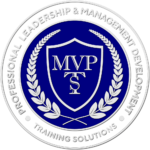Power and influence are essential elements of effective leadership. They enable leaders to motivate, guide, and inspire individuals, teams, and organizations toward achieving shared goals.
Understanding the sources of power and influence is crucial for leaders to leverage their strengths and develop their leadership capabilities.
In this blog, we will explore the main sources of power and leadership influence, examining how they can be harnessed to enhance leadership effectiveness and create a positive impact.
Enhancing Leadership Effectiveness and Creating a Positive Impact:
Positional Power:
Positional power is derived from a leader’s formal position or title within an organization. It includes legitimate power, which is the authority that comes with the position to make decisions, allocate resources, and enforce policies.
Positional power also encompasses coercive power, which is the ability to impose consequences or penalties on others.
Leaders who possess positional power can exercise control and influence based on their authority. However, relying solely on positional power can limit a leader’s effectiveness, as it may lead to compliance rather than a genuine commitment from their subordinates.
Expert Power:
Expert power is based on a leader’s knowledge, skills, and expertise in a particular field or domain. Leaders who possess expert power are respected and valued for their expertise, and their opinions and recommendations carry weight.
Additionally, leaders can develop expert power by continuously improving their knowledge, staying updated with industry trends, and acquiring specialized skills.
By sharing their expertise, mentoring others, and providing valuable insights, leaders with expert power can influence and inspire their team members.
Referent Power:
Referent power stems from the personal charisma, likability, and respect that a leader earns from others. It is based on trust, admiration, and a strong emotional connection.
Leaders with referent power are seen as role models and inspire others to follow their lead. To cultivate referent power, leaders must demonstrate authenticity, integrity, and empathy.
Moreover, they build meaningful relationships, actively listen to others, and show genuine care and concern. By embodying the values and behaviors they expect from their team members, leaders with referent power can inspire loyalty, commitment, and a willingness to go the extra mile.
Relational Power:
Relational power is derived from a leader’s ability to build and maintain positive relationships with others. It involves networking, collaboration, and the ability to connect with individuals at all levels of the organization.
Leaders with relational power excel at building networks and alliances, fostering cooperation, and creating a sense of unity and shared purpose.
Additionally, they value diverse perspectives, actively seek input from others, and promote a culture of inclusivity and collaboration.
Informational Power:
Informational power is based on a leader’s access to valuable information and their ability to control the flow of information within an organization. Leaders with informational power possess knowledge that others seek, giving them an advantage in decision-making and problem-solving.
Leaders can enhance their informational power by staying informed, gathering relevant data, and effectively communicating information to their team members.
Leaders with informational power can gain credibility and influence others’ perceptions and decisions by sharing timely and accurate information.
